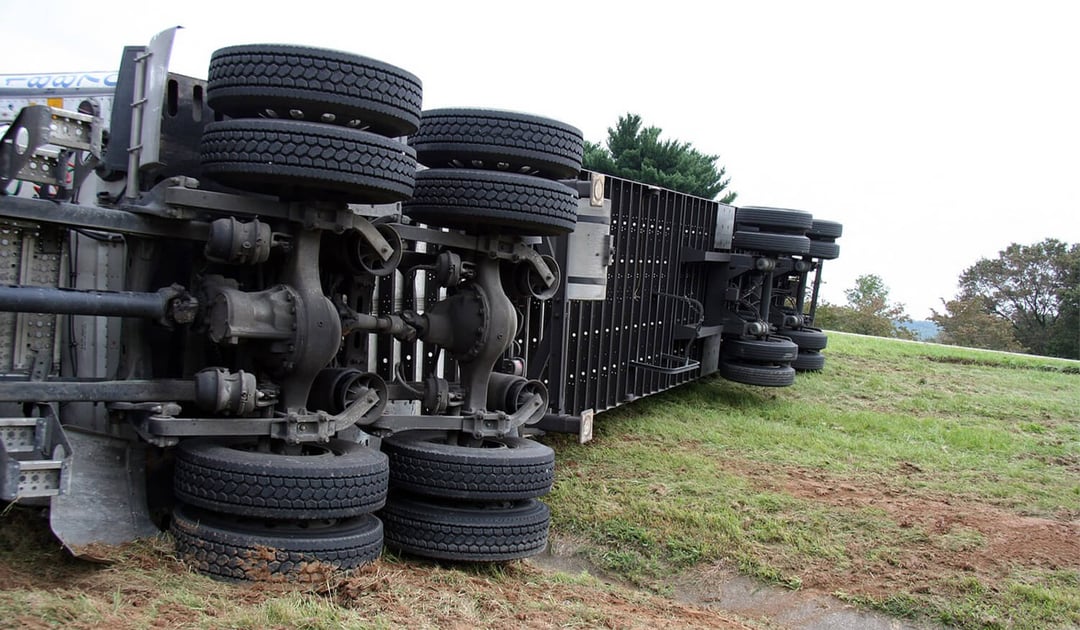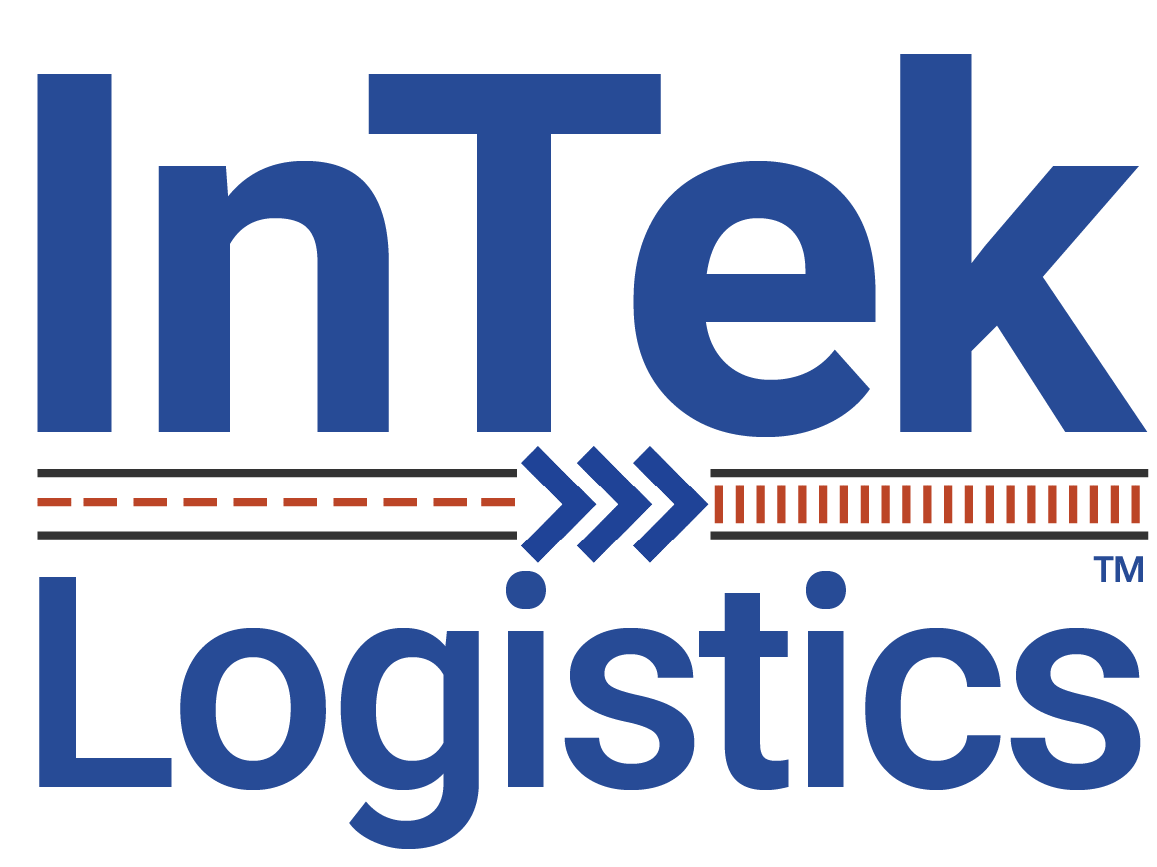
Transportation - as in, delivering products to their final destination - is a critical part of modern commerce. That makes protecting shipments against risks essential for businesses to thrive. Freight shipping insurance ensures shippers can recover losses due to damage, cargo theft, or other unforeseen events. But insurance can be confusing, so let's explore the types, coverage options, and some tips to maximize protection for your shipments.
What Is Freight Shipping Insurance?
Freight shipping insurance provides financial protection for shippers against the risks of loss, damage, or theft during transit. It is distinct from carrier liability, offering comprehensive coverage beyond what carriers are legally obligated to provide.
Carrier Liability vs. Freight Insurance
Once goods leave a business or warehouse, the entrusted carrier assumes responsibility for the safety of those items. Carrier liability is what the shipping company is legally responsible for during transport and/or storage. Should any loss, theft, damage, or other specified issue arise, they will cover the cost of the affected goods up to their maximum liability.
Freight insurance (also called cargo insurance), on the other hand, is a separate policy that bridges the gap between your carrier’s liability and your own responsibility. Should the value of the damaged or lost product exceed the carrier’s maximum liability, your freight insurance policy will kick in to cover the remaining cost.
What Does Freight Insurance Cover?
Freight insurance policies can cover any or all of the following risks:
- Loss
- Theft
- Physical Damage
- Non-Delivery of goods
- Infestation
- Government seizure
Not all freight insurance policies cover every possible scenario. For instance, while one policy might protect against natural disasters like hurricanes or tornadoes, it may not cover delayed delivery due to weather-related events.
One should never assume all freight insurance policies are the same in what they cover.
Common Freight Insurance Exclusions
Certain scenarios may be excluded from your freight insurance coverage regardless of your policy. These include:
- Poor packaging of your goods
- Inaccurate labeling of your shipment
- Normal wear and tear incurred during the shipment process
- Shipment and delivery delays
Additionally, certain types of goods are commonly excluded from freight insurance, such as:
- Weapons and Ammunition
- Alcohol
- Precious Metals and Gemstones
- Artwork and Antiques
- Tobacco Products
- Traded Metals
- Electronics
- Pharmaceuticals
Tip: Verify what is covered—and NOT covered—in any insurance policy you’re considering. Depending on the scenario and/or shipped goods, you may still be able to negotiate coverage for some exclusions.
For example, a named perils policy might allow you to specify delays as a covered risk. Also, note that some policies may require a valid claim against the carrier before they will pay out.
Importance of Freight Insurance and the Concept of Transferring Risk
Freight insurance plays a critical role in the transportation and logistics industry by protecting businesses from the financial consequences of lost or damaged goods during transit. It serves as a risk management tool that ensures continuity of operations and financial stability, particularly when dealing with high-value shipments, complex supply chains, or challenging shipping environments.
Why Freight Insurance Is Important
Protection Against Financial Losses
Freight insurance provides coverage for goods that are lost, damaged, or stolen during transit. Without insurance, businesses might have to absorb these costs, which can significantly impact profitability, especially for high-value or sensitive shipments.
Peace of Mind
Knowing that shipments are insured allows businesses to focus on their core operations without constant concern about the risks associated with transportation.
Fulfillment of Contractual Obligations
Many shipping agreements or partnerships require freight insurance to be in place to protect both the shipper and the receiver. This ensures compliance and strengthens business relationships.
Coverage Beyond Carrier Liability
Carriers are legally liable for only a portion of the value of damaged or lost goods, often capped by weight or specific limitations (e.g., under the Carmack Amendment for U.S. domestic shipments). Freight insurance ensures full coverage for the declared value of the goods, going beyond these limitations.
Mitigation of Unexpected Risks
Events like natural disasters, accidents, theft, or mishandling are unpredictable. Freight insurance minimizes the impact of these events on business operations and revenue.
The Concept of Transferring Risk
The core principle behind freight insurance is transferring risk from the shipper to the insurance provider. Instead of bearing the potential financial consequences of loss or damage, businesses pay a premium to the insurer, effectively shifting the risk of liability.
Risk Sharing vs. Risk Transfer
While carrier liability laws share some of the risks, freight insurance fully transfers the risk to the insurance company. This transfer ensures that the shipper is adequately compensated for any losses, regardless of the carrier's liability limits.
Cost Predictability
By transferring risk, businesses can convert unpredictable and potentially large expenses into a manageable, predictable cost (the insurance premium). This aids in budgeting and financial planning.
Business Continuity
In case of a catastrophic loss (e.g., a truck accident or a ship sinking), businesses without insurance might face severe financial strain. Risk transfer through insurance ensures that such events do not disrupt operations or cash flow.
Enhanced Customer Trust
Shippers that use freight insurance demonstrate to their customers that they prioritize the safe delivery of goods. This builds trust and strengthens client relationships.
Types of Freight Shipping Insurance
There are several different freight insurance types to choose from. These policies differ in what perils or causes of damage or loss they cover; and what types of loss or damage they will pay out for; and what items are covered. Some of the most common cargo freight insurance policies include:
Basic Coverage
Offering the least amount of coverage, basic freight insurance covers only limited perils. The insurer only covers specific causes of damage to your goods, or they may exclude certain items from coverage entirely. For example, they may cover damage due to an accident or a natural disaster, but not that caused by careless handling.
Named or Specified Perils Coverage
This type of freight insurance policy protects against specific types of hazards, risks, or perils that are outlined within the policy. If a type af damage occurs that isn’t named in the policy, the insurer will not cover it. For example, a named policy could specify coverage of damage from a tornado or a hurricane but not from severe flooding. A specified perils policy is often designed around the type of cargo being transported.
Broad Coverage
This policy offers more protection than basic or named coverage but not as much as all-risk coverage. Broad freight insurance coverage will compensate for all damage or loss to your cargo but includes specific exceptions set forth in the policy. These are often personal items, such as personal electronics or money.
All-Risk Coverage
The most comprehensive protection, all-risk cargo insurance covers any damage or loss due to any external cause. This could be an accident, a natural disaster, mishandling, theft, or even poor storage of your goods before, during, and after transit.
Total Loss-Only Coverage
As the name indicates, this type of freight insurance kicks in only when the entire shipment has been compromised rather than individual pieces or minor damage.
Contingent Coverage
A contingent cargo insurance policy is a supplementary safety net for any coverage gaps in your primary insurance policy. If, for example, your shipment’s total loss is more than your policy’s limits, or if your insurer denies a claim, your contingency insurance would cover the difference.
Note that some carriers and brokers offer additional insurance to purchase as an add-on to their policies. Before buying, make sure you understand what type of insurance they’re offering you and how it may impact your overall coverage—for example, you may think the additional policy, combined with the initial carrier liability, equals out to all-risk coverage, but may in fact only equal “excess” cargo coverage.
How Freight Shipping Insurance Works
- Assessing Risk and Declaring Value
- Shippers declare the value of goods and provide detailed descriptions.
- Higher-value shipments may require additional documentation.
- Policy Issuance
- Choose a policy type and pay the premium based on shipment value, destination, and risk factors.
- Claim Filing Process
- Document damage or loss promptly with photos and records.
- Submit claims along with proof of value and incident reports.
How to Choose the Right Freight Insurance Policy
Actionable tips for shippers:
- Understand Your Coverage Needs
- Analyze the nature, value, and frequency of your shipments.
- Compare the Coverage Various Providers Offer
- Look for providers with a solid reputation, industry expertise, and competitive rates.
- Review Policy Exclusions
- Be aware of exclusions like inherent vice, improper packaging, or acts of God.
- Evaluate Claims Processes
- Opt for insurers with straightforward and transparent claims procedures.
- Consult an Expert
- Seek advice from logistics or insurance experts to tailor the best coverage.
Best Practices for Protecting Your Cargo
- Invest in Secure Packaging
- Ensure goods are packed to withstand transit conditions.
- Leverage Technology
- Use IoT-enabled tracking for real-time monitoring and risk mitigation.
- Collaborate with Trusted Carriers
- Work with reliable carriers known for their handling practices. As part of the insurance coverage, shippers need to choose the right logistics partner they can trust for their shipping requirements.
- Regularly Assess and Update Insurance Policies
- Review policies annually to ensure they align with changing shipping needs.
FAQs on Freight Shipping Insurance
- What is the cost of freight shipping insurance?
- Cost depends on shipment value, destination, and policy type.
- Typically ranges from 0.1% to 0.5% of the shipment’s value.
- Does freight insurance cover international shipments?
- Yes, but coverage varies by provider. Check for specific international clauses. For example, most freight carriers do not offer coverage for cross border shipments into Mexico.
- What is not covered under freight insurance?
- Examples include poor packaging, inherent vice, and acts of God.
- How do I file a claim?
- Document the incident, notify the insurer promptly, and provide necessary evidence.
Securing Your Shipments
Freight insurance is an essential safeguard in the logistics industry, ensuring that financial risks associated with transit are managed effectively. By transferring risk to an insurer, businesses can focus on their growth and customer satisfaction while protecting their bottom line. It's a proactive measure that supports resilience and reliability in an ever-changing transportation landscape.
Freight shipping insurance is a vital tool for protecting your supply chain from unforeseen risks. By understanding coverage options, comparing providers, and adopting best practices, shippers can secure their goods and ensure peace of mind. Remember, the right insurance policy is an investment in your business’s resilience and reputation.
If you're ready to take the next step, at InTek Logistics, we can help. Just tell us what you need and we'll discuss how our expertise can help with the unique shipping challenges your business faces. Rather do a bit more research first? View our Freight Guides for comprehensive articles and eBooks on all things freight and logistics.
Get Updates
Featured Articles
Categories
- Freight & Shipping Costs (56)
- Freight Broker (67)
- Freight Forwarder (3)
- Intermodal Transportation (197)
- International & Cross Border Logistics (43)
- Logistics & Supply Chain (438)
- Logistics Service Provider (80)
- LTL (39)
- Managed TMS (50)
- News (42)
- Supply Chain Sustainability (12)
- Transportation Management System (38)
- Truckload (124)
- Warehousing & Distribution (52)



